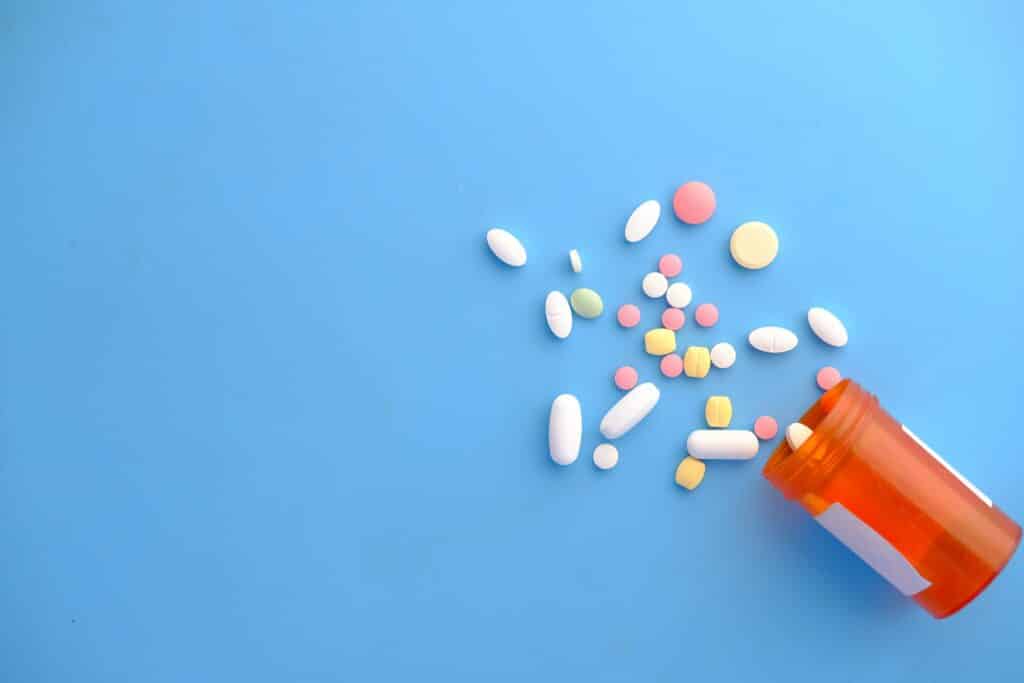If you find yourself wondering “can you die from alcohol withdrawal?” you should seek help immediately.
Alcohol withdrawal can be fatal. If you are experiencing withdrawal symptoms, contact emergency or professional services now.
NCADD (the National Council on Alcoholism and Drug Dependence) reports that 1 in 12 adults is dependent on alcohol. With up to 2 million adults suffering from alcohol withdrawal every year in the United States.
If you drink large amounts of alcohol long-term, you will bring about changes to the function and structure of your brain. This happens as alcohol abuse interferes with the movement, transmission, and absorption of neurotransmitters in the brain.
For anyone with severe alcohol use disorder quitting alone and without medical supervision presents certain risks. During acute alcohol withdrawal and delirium tremens, alcohol withdrawal could be fatal.

How Can Alcohol Withdrawal Kill You?
While alcohol in moderation is relatively safe, moderate to heavy drinking regularly can create physical dependence and lead to dangerous symptoms while withdrawing from alcohol.
Roughly half of those dependent on alcohol will experience withdrawal symptoms when they stop drinking, according to the NEJM (New England Journal of Medicine).
The same data shows that between 3% and 5% of those experiencing alcohol withdrawal will encounter delirium – pronounced confusion – or grand mal seizures, possibly even both. When this severe form of alcohol withdrawal manifests, it is called DTs (delirium tremens).
So how can quitting alcohol kill you without medical support? The following medical complications can make delirium tremens fatal without prompt intervention. These can also be signs an alcoholic is dying without immediate medical intervention:
- Dangerously high fever
- Cardiac arrhythmia
- Hyperthermia
- Grand mal seizures
National Library of Medicine data shows that the symptoms of alcohol withdrawal typically present within 8 hours of the last drink. Symptoms of alcohol withdrawal normally peak after 2 or 3 days.
The symptoms of delirium tremens, on the other hand, sometimes do not present for as long as 3 days after the last drink. This delayed reaction is one of the reasons why DTs can be deadly: many people think they are out of the woods by this stage, only to find delirium tremens presenting, and no medical care readily accessible.
The scope and severity of alcohol withdrawal is strongly related to how dependent you are on the substance. If you have been drinking heavily and long-term, you are more likely to experience serious adverse withdrawal symptoms than someone with a mild alcohol use disorder.
The dangers and the intensity of alcohol withdrawal are also impacted by any co-occurring disorders, as well as if alcohol is combined with other central nervous system depressants like benzodiazepines.

John Hobbs
Talk to a Counselor
Want to learn more about getting help for addiction?
Our sober recovery specialists understand the challenges
of recovery and are here to assist you in your journey.
How Can You Die From Alcohol Withdrawal?
So why is alcohol withdrawal deadly? Dying from alcohol withdrawal is rare, but it can happen in long-term heavy drinkers quitting without medical supervision.
Withdrawal seizures are generalized and often appear within 24 hours of the last drink. Of those who experience seizures, 3% develop more serious status epilepticus seizures. This is a medical emergency. If untreated, status epilepticus can lead to permanent disability or even death.
The most serious symptoms of alcohol withdrawal unfold during delirium tremens — these can be fatal.
DTs are characterized by the following symptoms:
- Confusion
- Disorientation
- Accelerated heart rate
- Hallucinations
- Hypertension
- Increased breathing rate
- Fever
- Profuse sweating
- Agitation
- Stupor
- Loss of consciousness
The early treatment of delirium tremors means death from alcohol withdrawal is rare.

How Can Alcohol Withdrawal Be Fatal?
Although alcohol withdrawal itself is not a cause of death, there are three notable symptoms of the withdrawal process that can be fatal:
- Seizures
- Delirium tremens
- Wernicke-Korsakoff syndrome
So how can you die from alcohol withdrawal symptoms?
1) Seizures
Individuals who have been drinking alcohol heavily for many years are more susceptible to experiencing seizures during alcohol detox and withdrawal. This can bring about aspiration, choking, and physical injuries as a result of uncontrollable convulsions.
Seizures that manifest when alcohol withdrawal occurs are typically tonic-clonic seizures (previously known as grand-mal seizures). Tonic-clonic seizures involve spasmodic muscular contractions alternating with generalized convulsions.
If seizures occur locally – with twitching limbs, for example – this suggests the presence of a co-occurring mental health disorder.
2) Delirium tremens
Delirium tremens is a serious condition that presents many potentially dangerous withdrawal symptoms, including:
- Confusion
- Disorientation
- Hyperactivity
- Heart attack
- Seizures
- Stroke
3) Wernicke-Korsakoff syndrome
The combination of Wernicke encephalopathy and Korsakoff’s syndromes is not a complication of alcohol withdrawal, but a nutritional deficiency. WKS (Wernicke-Korsakoff syndrome), informally known as wet brain, is a nervous system disorder triggered by a deficiency of vitamin B1 (thiamine). The condition is prevalent in alcoholics.
Although fewer than 5% of those with WKS exhibit depressed levels of consciousness, untreated individuals may progress through the following stages:
- Stupor
- Coma
- Death
Alcohol Withdrawal Death
You may be wondering, “is alcohol withdrawal fatal?” or “can alcoholics die without alcohol?”.
Acute alcohol withdrawal symptoms often occur if you have been drinking heavily and chronically but then suddenly and drastically reduce your alcohol intake.
During this acute phase of withdrawal, you are at heightened risk of slipping out of consciousness, having seizures, and developing DTs.
The potentially life-threatening complications during this acute stage of alcohol withdrawal mean suddenly quitting after a prolonged period of heavy drinking is not only unwise but could be lethal. If you or a loved one is facing alcoholism, learn the best way to help an alcoholic find safe and lasting treatment.

Can You Die from Drug Withdrawal?
Many who are wondering, “can you die from alcohol detox ?” may also be confronted with drug withdrawal if also abusing drugs.
Yes, you can die from drug withdrawal especially if detoxing at home without professional help. Drug assisted therapies that exist at rehab centers utilize medication-assisted therapy (MAT) which helps the body detox without severe or deadly symptoms that can occur.
Since drug overdose can be fatal in certain situations, it is always recommended to not detox at home, and to try to find a facility that specializes in detox instead.
What Withdrawals Can Kill You?
Certain types of substance withdrawal are more prone to cause death from alcohol withdrawal during unassisted detox, including:
- Alcohol
- Opiates
- Benzos

Prevent Death From Alcohol Withdrawal at Renaissance Recovery
If you are wondering “can alcohol withdrawal kill you,” help available to overcome alcohol addiction.
At Renaissance Recovery‘s addiction treatment center, you’ll find the outpatient treatment you need to recover from alcohol use disorder safely, and without running the risk of experiencing delirium tremens alone and at home.
If you’re struggling with alcohol addiction, medical detox will help lessen the intensity of both withdrawal symptoms and cravings for alcohol. You will benefit from 24/7 medical supervision, and you’ll have access to proven and FDA-approved medications.
Beyond this, other symptoms of withdrawal like insomnia, anxiety, depression, and nausea can all be controlled using medications.
With your body purged of alcohol, you’ll be ready to engage with one of our evidence-based outpatient treatment programs. Alongside medication-assisted treatment, you’ll also have counseling, both individually and in group settings.
If you have a co-occurring mental health disorder, we recommend our dual diagnosis treatment program. Here, we’ll help you address both these issues simultaneously, so you can stop self-medicating your symptoms with alcohol.
We offer IOPs, PHPs, and Sober Living if you need more structure and time commitment but without the expense or the restrictions of inpatient rehab.
If you are asking “Can you die from withdrawal” chances are you will likely need a more intensive form of treatment for alcohol dependence. If that is the case, reach out to our team at Renaissance Recovery and we can help you get in contact with a medical professional for your situation.








